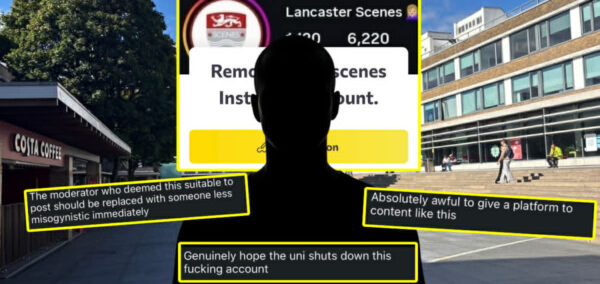
Union lodges motion forcing University of Sheffield to negotiate as redundancies loom
This begins a formal dispute that could result in strikes
The University of Sheffield branch of the University and College Union (UCU) has sent a collective grievance motion to the University of Sheffield, beginning a formal dispute process that could result in strikes.
The UCU, which is the largest union on campus, is demanding that the university commit to no compulsory redundancies, reduces their target for staff cost cuts and negotiates to find other ways of reducing expenditure.
Last week, Sheffield UCU sent the University Executive Board a motion outlining their demands amidst a drive by the university to cut costs. The motion was passed by a unanimous vote at what the UCU has said was a “well-attended” General Meeting.
The collective grievance motion mandates that the university pause in its current action and attend at least two meetings over the next 21 days with the UCU to negotiate. According to Sheffield UCU, so far, University of Sheffield leadership has declined repeated requests to negotiate since they passed a no confidence vote in the University Executive Board.
In total, the university has said it wants to reduce spending on staff by £23m, with £9m of cuts planned for this year, and £14m of cuts next year. The cuts to staff expenditure are part of spending reductions the University of Sheffield is aiming to make in reaction to a £50m financial shortfall. Last month, the university’s vice chancellor, Professor Koen Lamberts, explained in an email to staff that the university was aiming to regain a financial surplus by 2026-27.
The most significant red line for the UCU that may provoke them to strikes is compulsory redundancies. The recent motion is the first step in a process that the union needs to follow, should they wish to utilise their right to strike over compulsory redundancies.
Most Read
A UCU spokesperson addressed concerns of how strikes could impact students: “It’s something we definitely don’t do lightly. The challenge is: What is the alternative? When we have exhausted all the alternatives, we have to go to strike action or else the outcome is, in the long run, much, much worse for everyone involved.
“So there is inevitably disruption from industrial action, and we have to recognise that, but we think it’s better than the alternative which is the degradation of student experience and staff quality of life. The impact of not taking any action far outweighs the impact of any action that we might take.”
Last month, The Sheffield Tab reported that the University of Sheffield is targeting a number of departments for a voluntary severance scheme (VSS), which is due to close on 8th January. The University of Sheffield has said that the scheme is intended to minimise the need for compulsory redundancies to meet their targets for reductions in staff expenditure.
At the time, a spokesperson for the UCU said:“We’re hearing from people that it’s not being perceived as a very generous or desirable deal. I don’t think our members think it goes far enough to make it attractive to them.”
Following the grievance motion, Sheffield UCU has told The Sheffield Tab that although more staff are considering the option of voluntary severance as the initial anger with which many responded to the scheme has reduced somewhat, they continue to estimate that the scheme will fall far short of reaching the cost cutting targets – and, as a result, the university will be faced with a choice between having to change those targets, and enforcing compulsory redundancies.
Since cuts to staff spending were announced, the University of Sheffield has repeatedly pointed out that it has prioritised non-staff cuts. In his email last month to staff, announcing the VSS, the vice chancellor said: “The scheme will work alongside the other measures we’re putting in place, including a range of non-staff reductions such as reviewing our capital expenditure programme and the size of our estate, and reducing discretionary expenditure.”
In recent weeks University of Sheffield has said that, pending a planning review, they will be pausing the delivery of their “flagship” new Central Teaching Laboratory for at least a year. And in November, staff and students protested at the “sudden” closure of the Courtyard Café in the Management School building.

Left, an artist’s impression of the plans for the Central Teaching Laboratory via University of Sheffield. Right, a protest at the Management School against the café closure, via @SheffieldUCU on X.
Sheffield UCU has told The Sheffield Tab it will be arguing that the university should look at selling assets and equipment, and slashing executive pay instead of making redundancies.
The university’s financial woes mirror similar problems throughout the British university sector. New rules placing limits on students bringing family with them when they come to the UK has resulted in a sharp fall in international student numbers.
According to the Home Office 263,400 sponsored study visa applications were made between July and September, down from 312,500 in the summer of 2023. This year at the University of Sheffield, there are 2,200 less foreign students compared to the 2022-23 academic year.
Falling international student numbers represents a significant loss of revenue to all British universities. Currently, most domestic students pay tuition fees of £9,250 per year, while international students pay a rate of £22,000 per year.
The University of Sheffield’s current dispute with the UCU began when the union passed a no confidence vote in the university’s leadership. Last week, after just over three weeks, Sheffield UCU received a reply to the no confidence vote, just before the collective grievance motion was passed.
In his reply, the vice chancellor said: the University Executive Board “have been open and transparent with all colleagues about the reasons for the financial challenges we face. We have also explained the steps we are taking to address these challenges, setting out how we plan to return to a more financially sustainable position, whilst ensuring we maintain our excellent teaching and research activities.”
However, sources who have attended meetings between the university and union officials, have told The Sheffield Tab that in response to concerns that a reduced number of staff will be asked to do the same amount of work as before the cuts, university officials have repeatedly use the phrase ‘doing less with less’ to explain what expectations of staff workloads will be after the cuts.
A spokesperson for the UCU said: “Obviously there will be a knock on effect to the quality of teaching. It will mean larger classes, smaller staff to student ratio. It will mean overworked staff who have less time to work on what they’re doing and they’re likely not going to be able to provide as good quality teaching and feedback.”
The news of the collective grievance motion follows a student protest last week against staff cuts. A number of campaign groups handed out flyers and displayed a banner saying: “Stop the cuts.”

With university’s finances come under more scrutiny, The Sheffield Tab has also revealed in recent weeks that vice chancellor Koen Lamberts has claimed expenses on £17,598 of business class travel expenses this year.
It was also revealed that £248,000 had been spent on security for pro-Palestine student protest action since January.
A spokesperson for the University of Sheffield said: “We have been keeping colleagues and our campus trade unions informed and updated about the financial position and the range of targeted actions we are taking, which include reviewing infrastructure projects, carefully managing staff vacancies and offering a voluntary severance scheme in selected areas of the university.
“We recognise this is a difficult time for colleagues and we are firmly committed to supporting them and continuing to work constructively with our trade unions, whilst protecting our excellent research, teaching and student experience.
“The university sector is facing unprecedented financial difficulties and we will continue to navigate these challenges responsibly and transparently.”
Featured images via @steelcitysnaps and SheffieldUCU on X and University of Sheffield




















